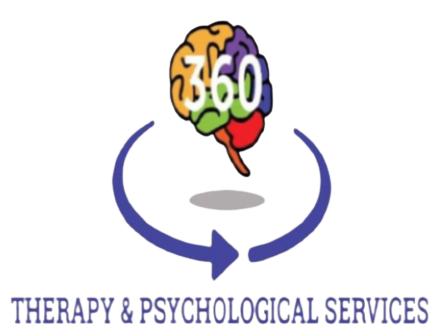What to Expect from Psychodiagnostics Assessment – A Complete Guide

When dealing with mental health challenges, a psychodiagnostic assessment can provide valuable insights into an individual’s psychological functioning. This thorough evaluation process helps identify cognitive, emotional, and behavioral patterns, offering a roadmap for effective treatment.
The focus of a psychodiagnostic assessment is to diagnose mental health conditions, develop treatment plans, and ensure proper care. Whether you’re exploring treatment options for anxiety, depression, or other concerns, this guide will help you understand what to expect from a psychodiagnostic assessment and how it can benefit your mental health journey.
What is a Psychodiagnostic Assessment?
A psychodiagnostic assessment is an in-depth evaluation designed to assess psychological disorders or mental health issues. It typically involves a combination of interviews, psychological testing, and observational techniques to gather data about an individual’s emotional and cognitive health. This type of evaluation is often conducted at a Top psychological evaluation clinic, where highly trained professionals use evidence-based methods to assess various mental health conditions.
The primary goal of a psychodiagnostic assessment is to arrive at a clear diagnosis and develop a personalized treatment plan. It can also help clinicians identify the underlying causes of symptoms and provide guidance on therapeutic interventions that will best suit the individual’s needs.
Components of a Psychodiagnostic Assessment
Psychodiagnostic evaluations typically consist of several components:
- Clinical Interview: The first step involves a clinical interview with the client. The clinician asks detailed questions about the individual’s psychological history, current symptoms, and life experiences. This helps create a complete picture of the client’s mental health.
- Psychological Testing: This is one of the most crucial aspects of a psychodiagnostic assessment. It may include tests for cognitive functioning, personality traits, emotional well-being, and other areas. Various standardized tools are used to ensure accurate results. For adults seeking an evaluation, searching for a “psychological evaluation for adults near me” can lead to finding local clinics that provide these services.
- Behavioral Observations: Clinicians may observe behavior during testing or in different settings. These observations can offer insights into how the individual interacts with their environment, providing additional data for the assessment.
- Report and Diagnosis: After all tests and interviews are completed, the clinician compiles the results into a comprehensive report, providing a diagnosis and recommendations for treatment.
Benefits of Psychodiagnostic Testing
A psychodiagnostic assessment is essential for both diagnosing mental health conditions and guiding effective treatment. Here are a few key benefits:
- Accurate Diagnosis: One of the main advantages of psychodiagnostic testing is that it provides an accurate diagnosis, which is the foundation for effective treatment.
- Tailored Treatment Plan: The results of the assessment help clinicians develop personalized treatment plans that address the unique needs of each individual.
- Identification of Co-occurring Disorders: Often, individuals have more than one mental health condition. A thorough assessment can identify co-occurring disorders, allowing for comprehensive treatment.
Applications of Psychodiagnostic Testing
Psychodiagnostic testing has many applications and can be used to assess a wide variety of mental health conditions. Some common applications include:
- Diagnostic Clarification: In cases where the symptoms are ambiguous, testing can help clarify whether a mental health condition is present.
- Treatment Planning: Results from a psychodiagnostic evaluation are instrumental in developing targeted interventions and therapies, such as cognitive-behavioral therapy or medication management.
- Legal and Forensic Evaluations: In certain cases, such as child custody battles or criminal proceedings, psychodiagnostic assessments may be required to inform legal decisions.
Clinics such as the Best psychological consulting clinic are known for providing comprehensive assessments and treatments based on thorough evaluations.
What to Expect During the Process
If you’re considering undergoing a psychodiagnostic assessment, it’s helpful to know what to expect. Here’s a breakdown of the process:
- Initial Consultation: During the initial consultation, the clinician will explain the purpose of the assessment and what the process entails. You will likely be asked to complete intake forms and discuss your psychological history.
- Interviews and Testing: You will participate in clinical interviews and various tests designed to assess your cognitive and emotional functioning. Depending on the complexity of your case, this process may take several sessions.
- Feedback Session: Once the assessment is complete, the clinician will schedule a feedback session to discuss the results. They will explain the diagnosis, share a detailed report, and offer recommendations for treatment.
- Next Steps: Based on the results, you may be referred to a therapist or psychiatrist for further treatment, or you may begin working with a clinician at a psychological and consulting clinic to start your recovery.
How Long Does a Psychodiagnostic Assessment Take?
The length of a psychodiagnostic assessment can vary depending on the individual case. Generally, the process takes between 2 to 6 hours, including interviews, testing, and feedback sessions. More complex cases may require additional time, especially if the individual is being assessed for multiple mental health conditions.
Frequently Asked Questions
What is a psychodiagnostic assessment?
A psychodiagnostic assessment is an in-depth evaluation that involves clinical interviews, psychological testing, and behavioral observations to diagnose mental health conditions and provide treatment recommendations.
What are the applications of psychodiagnostic testing?
Psychodiagnostic testing is used for diagnostic clarification, treatment planning, and legal evaluations. It helps clinicians understand the underlying causes of symptoms and develop personalized interventions.
How long does a mental health diagnostic assessment take?
The duration of a mental health diagnostic assessment typically ranges from 2 to 6 hours, depending on the complexity of the case and the number of tests administered.
What is asked during a mental health assessment?
During a mental health assessment, clinicians will ask about your psychological history, current symptoms, life experiences, and any previous treatments. You may also be asked to complete various psychological tests.
What are the types of psychological assessments?
There are several types of psychological assessments, including cognitive testing, personality assessments, and emotional functioning tests. These tests help assess different aspects of mental health.
Summing Up
A psychodiagnostic assessment offers valuable insights into mental health conditions and helps clinicians develop effective treatment plans tailored to individual needs. Whether you’re seeking an evaluation for anxiety, depression, or other concerns, understanding the process and its benefits can help you make informed decisions about your mental health care. Any top psychological evaluation clinic can provide comprehensive services to ensure individuals receive the support they need to thrive.
recent post

Best Tips for Choosing the Right Family Doctor for Your Health Care

What to Expect from Psychodiagnostics Assessment – A Complete Guide


How to Find the Right Therapist for Your Mental Health Matters


